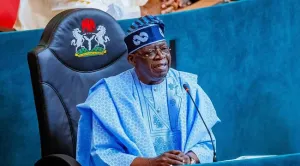National Economic Council Receives Briefing on Key Federation Accounts

The Accountant-General of the Federation provided a comprehensive briefing to the National Economic Council (NEC) on the status of three critical federation accounts during its latest meeting. The accounts, which play a pivotal role in Nigeria’s fiscal management and economic stability, include the Excess Crude Account (ECA), the Stabilisation Account, and the Natural Resources Development Account. The briefing highlighted the balances of these accounts as of April 2025, offering insights into the nation’s financial reserves and resource allocation strategies.
Excess Crude Account (ECA)
The Excess Crude Account, established to save surplus revenue from crude oil sales above the budgeted benchmark price, stood at a balance of $473,754.57 as of April 2025. The ECA serves as a buffer to cushion the economy against oil price volatility and to fund critical infrastructure projects. While the balance reflects a modest reserve, it underscores the need for prudent management given global oil market fluctuations and Nigeria’s reliance on oil revenue.
Stabilisation Account
The Stabilisation Account, designed to provide financial support to states and the federal government during periods of economic downturn, recorded a balance of N63,535,835,786.60. This account is a critical tool for maintaining fiscal stability, enabling the government to address revenue shortfalls and mitigate economic shocks. The substantial balance indicates a strategic effort to bolster resilience against unforeseen economic challenges.
Natural Resources Development Account
The Natural Resources Development Account, which supports the development of Nigeria’s non-oil natural resources, reported a balance of N72,858,962,913.29. This account is instrumental in diversifying the economy by funding initiatives in agriculture, solid minerals, and other sectors. The significant balance reflects ongoing efforts to reduce Nigeria’s dependence on oil and promote sustainable economic growth through resource development.
Context and Implications
The briefing to the NEC, chaired by the Vice President and comprising state governors, the Central Bank Governor, and key ministers, underscores the government’s commitment to transparency and accountability in managing public finances. These accounts are critical components of Nigeria’s fiscal framework, ensuring that revenues are saved, stabilized, and strategically invested for the benefit of current and future generations.
The balances reported highlight both opportunities and challenges. The modest ECA balance signals the need for cautious optimism, as global oil prices remain unpredictable. Meanwhile, the robust figures in the Stabilisation and Natural Resources Development Accounts provide a foundation for addressing economic volatility and advancing diversification efforts. The NEC is expected to use this information to guide policy decisions, including budget planning, infrastructure investments, and economic diversification strategies.
Looking Ahead
As Nigeria navigates a complex global economic landscape, the management of these accounts will remain a focal point for policymakers. The government’s ability to balance immediate fiscal needs with long-term economic goals will determine the effectiveness of these reserves in promoting stability and growth. The NEC is likely to continue monitoring these accounts closely, ensuring that they align with the nation’s broader economic objectives.
The Accountant-General’s briefing serves as a reminder of the importance of fiscal discipline and strategic planning in safeguarding Nigeria’s economic future. Stakeholders across the federation will be watching closely as the government leverages these resources to address pressing challenges and capitalize on emerging opportunities.







